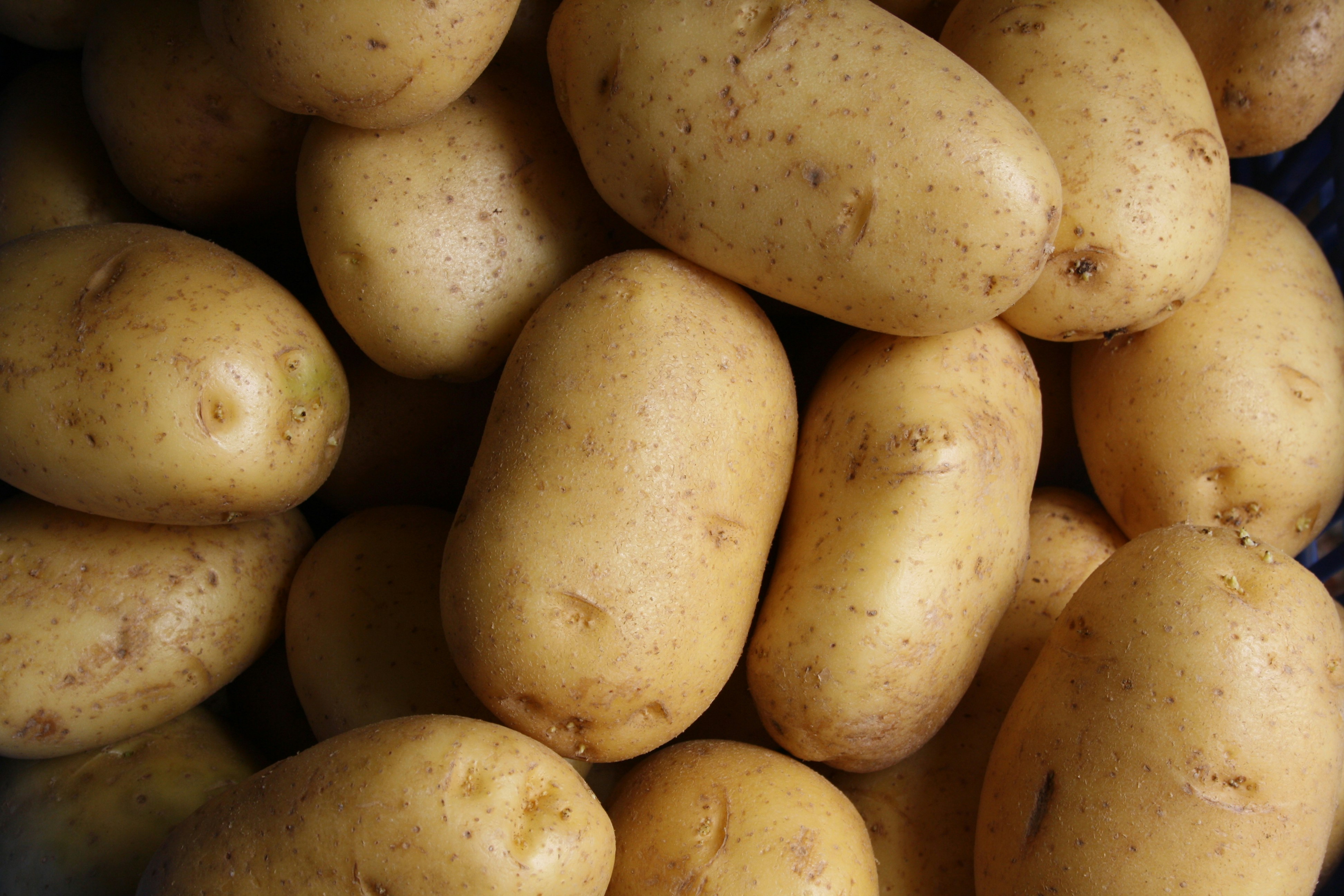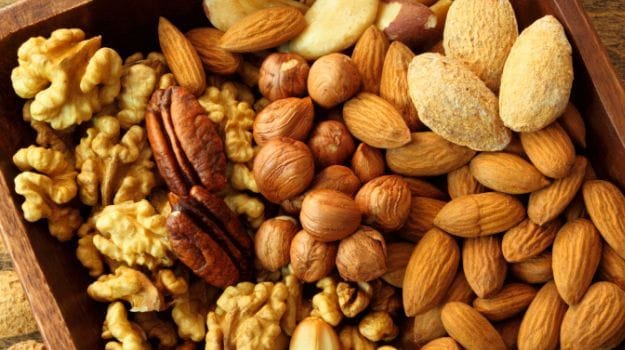
It is definitely true that including nuts in your meal can do great wonders for you - they are a powerhouse of energy, full of natural fibre, proteins, minerals and even unsaturated fats. However, despite the myriad benefits, most people are afraid to consume them because of the precarious myth that they are full of calories. On the contrary, many studies reveal they can accelerate weight loss, lower your risk of higher cholesterol and even make your heart healthier. The secret behind reaping those benefits is having the right 'portion'. Get this right and you'll be munching away to a healthier you!
According to Dr. Ritika Samaddar, Dietics, Max Hospital, "The American research suggests that a person should consume one ounce of nuts per day. That is 20-25 nuts daily."
She added, "The consumption nuts should be a substitution for unhealthy snacking. Since nuts are not zero in calories, they can be consumed as a substitution for unsaturated fats. The most healthiest of all nuts are almonds, followed by walnuts and pistachios. But one should always include nuts in their diet in a recommended amount."
(Eat Nuts Daily to Lose Weight)
Why Go For Nuts?
Brainy Cashew Nuts
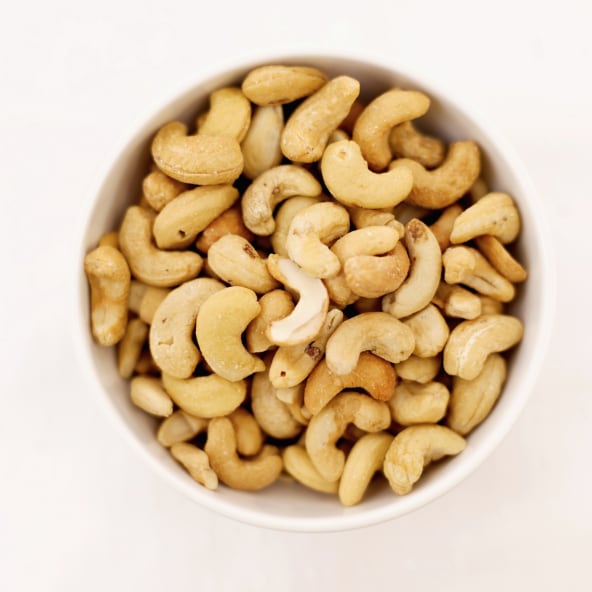
Here's a surprising fact: not only do cashew nuts have a creamy texture but also have a lower fat content than most other nuts. Approximately 82% of their fat is unsaturated fatty acids, plus about 66% of this unsaturated fatty acid content is heart-healthy monounsaturated fats. Moreover, the fat content in cashew nuts is considered to be "good fats." This is due to the agreeable ratio in the nut for saturated, monounsaturated, and polyunsaturated fats, which researchers say is the ideal ratio for optimal health.
Cashews are also a good source of iron, magnesium and zinc. Iron helps deliver oxygen to all of your cells, which can prevent anaemia, and zinc is critical to immune health and healthy vision. Magnesium on the other hand helps improve memory and protects against age-related memory loss.
According to Dr.Gargi Sharma, weight-management expert, "You should have 4 to 5 cashew nuts every day. You can add them to your salad or toss them in your chicken stir-fry."
Pistachios: The Skinniest Nut
Pistachios are said to be the slimmest of all nuts with less than four calories per nut. Moreover, since they come enclosed in shells, eating them requires a little effort which slows down your pace. As a result, you tend to eat slowly rather than greedily digging into a pack without keeping a check on quantity.
Pistachios contain l-arginine, which makes the lining of your arteries more flexible thereby reducing the chances of developing blood clots that could cause heart attacks, and vitamin E, which is essential for the body.
Around 5 to 7 of them a day are considered healthy. It also provides you with 25 % of the daily value for vitamin B-6, 15 %t of the daily value for thiamine and phosphorus and 10 % of the daily value for magnesium. Add some to your fruit salad or next time you make pesto sauce for your pasta, toss in a few pistachios for a unique flavour.
Almonds: The All Rounder
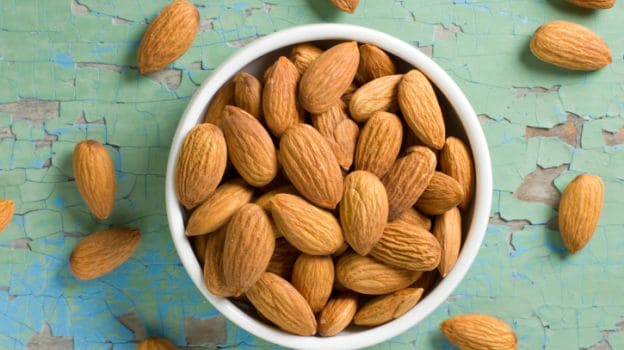
A high-fat food that's good for your health? That's not an oxymoron, its almonds. They are high in monounsaturated fats, which have been associated with reduced risk of heart disease. Almonds contain the most fibre - about three grams per ounce - compared to other nuts, and are richest in vitamin E, a powerful anti-oxidant.
They're also a great way to go about to shed those extra kilos. According to a study, those who included almonds in their weight loss plan lost more weight than those who avoided it. Other researches show that almonds are especially healthy for people worried about their blood sugar. More than that, they are good for the gut and said to boost the body's immune system.
But what should be their serving size? According to Dr.Gargi Sharma, you should have 8 to 10 soaked almonds a day.
To incorporate almonds in your diet, chop a few of them into your bowl of hot oats along with some fruits or sprinkle them in yoghurt. You can even munch on a few of them covered with dark chocolate when you have a craving for something sweet! Or why not make those fluffy pancakes with almond flour?
(Why Almonds are Good for You)
Walnuts: Inflammation Fighters
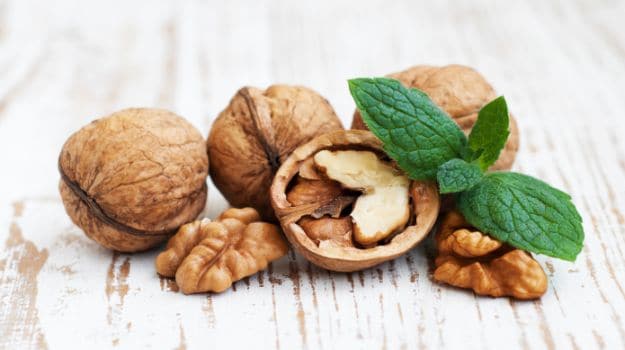
They're a great way to load up on healthy unsaturated fats. Adding walnuts to your diet can help you to maintain your ideal weight over time, according to many researches. Walnuts are loaded with antioxidants, which help protect your body from cellular damage, heart disease, cancer, and premature aging. They are also rich in omega-3 fatty acids, which is extremely good for your body.
A healthy serving size is about 1 to 2 walnuts, per day. To add these wonder nuts to your meal, chop them in your whole grain cereal or make your own walnut butter by blending a few of them with some honey and cinnamon if you wish.
(The Walnut Diet: Regular Dose of the Nut May Help Slow Cancer Growth?)
Peanuts: Heart Health Boosters
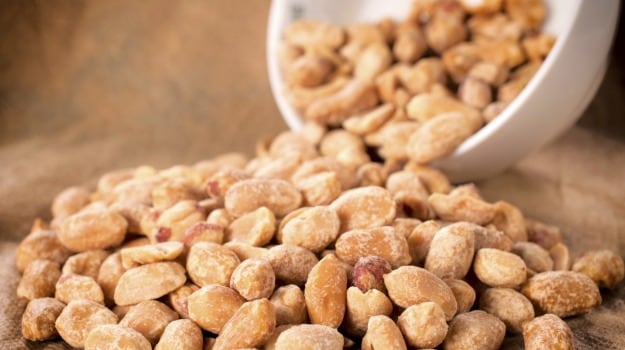
Peanuts come in endless types - flavoured and spice coated, and with varying nutritional worth - though many of us commonly associate it with peanut butter. Say goodbye to store-brought peanut butter and make your own at home by using roasted peanuts and honey. You can dip celery or apple sticks in them for a good snack.
Peanuts are rich in monounsaturated fats. Studies of diets with a special emphasis on peanuts have shown that this little legume is a big ally for a healthy heart. Apart from this, they are also a rich source of Vitamin E, Folate and Manganese.
Filled with almost 22% of anti-oxidants, they can boost your immune system and keep you away from cardiovascular diseases. But, one needs to ensure to consume the right quantity.
The healthy serving size for them is about 8 to 10. Include them in your meal, sprinkle a few in your salad at lunch or use peanut oil to add a nutty flavour to your dressing. Even steamed veggies with roasted peanuts are a good option to go with.



